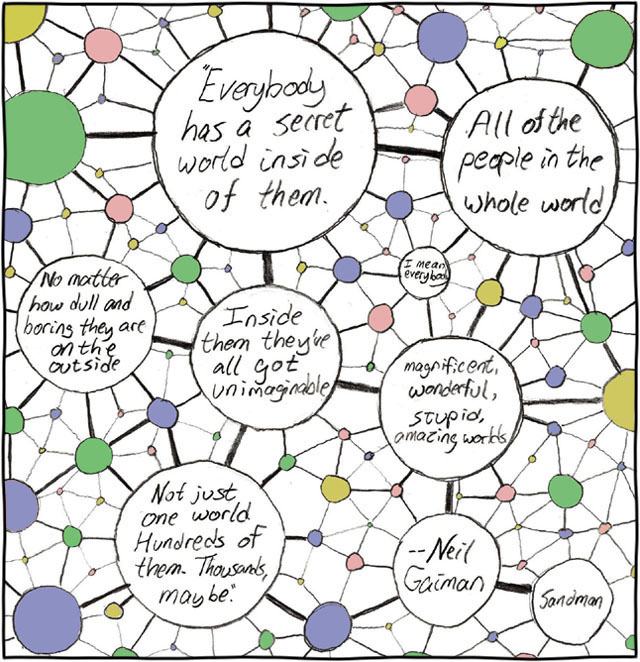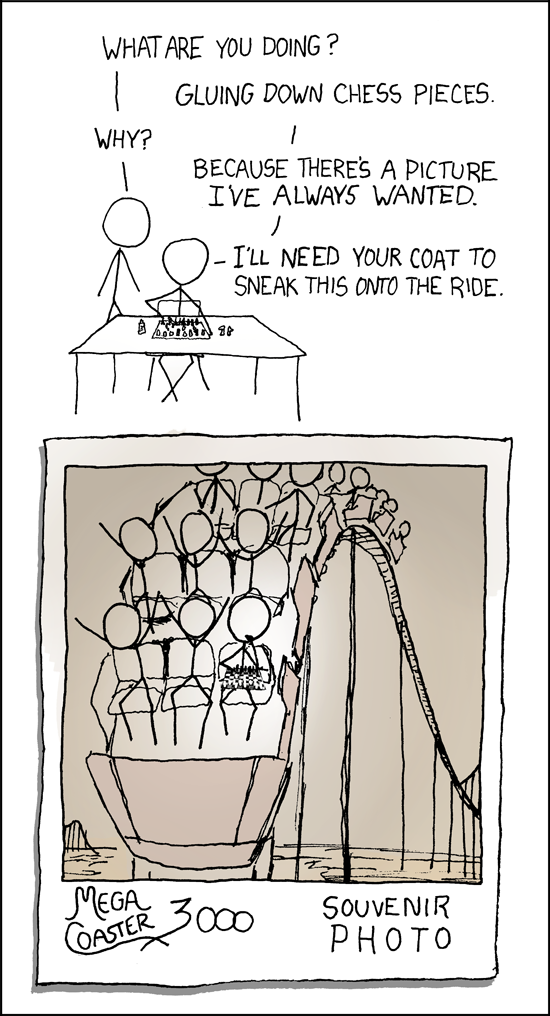"'They're such beautiful shirts,' she sobbed, her voice muffled in the thick folds. 'It makes me sad because I've never seen such -- such beautiful shirts before'" (The Great Gatsby, 92).
Haha, what? This whole reunification scene in chapter five is very interesting. Hmm, maybe "awkward" is a better word.
First of all, Gatsby acts like a teenager when he has Jordan and Nick set him up with Daisy without actually talking to her. Then, after Nick says he will arrange a meeting between Gatsby and Daisy, Gatsby responds by offering Nick a job. Then, the day of the meeting, Gatsby gets stage fright, and when Nick walks into his house bringing Daisy, Gatsby had fled the living room. And then he decides to make it even more awkward by knowing offhand that they hadn't seen each other for "five years next November" (87). Poor Nick has to give him a pep talk!
Then, after about half an hour, Nick returns to the living room to see Daisy's face "smeared in tears" and Gatsby "glowing" with joy (89). "After his embarrassment and his unreasoning joy he was consumed with wonder at her presence" (91-2). They get absorbed in each other's materialism when Daisy cries over his nice shirts and then adores his yacht. Perhaps the most entertaining part is when Nick becomes their chaperon. "I tried to go then, but they wouldn't hear of it; perhaps my presence made them feel more satisfactorily alone" (94).
As I finish the first half of the novel, I'm not quite sure where this relationship is going to head. It has weird foundations in mutual wealth and materialism, and they remember each other fondly from a brief meeting five years ago. I mean, in my mind, there's no way this is going to turn out well for either one of them.
Speaking of Gatsby's deepest secrets, here's an xkcd picture I like. I think I used it for Never Let Me Go, but it really fits the wealthy characters in this novel, too. Behind Gatsby's countenance is his crazy longing for Daisy Buchanan. I like him -- he seems more modest and casual than the other wealthy characters, but his obsession with Daisy is a little creepy, and there's no doubt that he's materialistic, as well.
Showing posts with label xkcd. Show all posts
Showing posts with label xkcd. Show all posts
Saturday, April 21, 2012
Friday, August 12, 2011
"When in doubt, move a pawn."
"'I can see,' Miss Emily said, 'that it might look as though you were simply pawns in a game. It can certainly be looked at like that. But think of it. You were lucky pawns'" (Never Let Me Go, 266).
As I've said, my favorite quotes in the book have been analogies, and now that I'm finished reading, I think it's appropriate that this is the last analogy I'm going to analyze. Miss Emily is comparing the students (or clones, as these last few chapters verified) to pawns in a game of chess. They're insignificant parts of society controlled by everyone else. This analogy does not make cloning for the sake of scientific progress seem like such a great idea.
That last part -- "'But think of it. You were lucky pawns'" -- has a bit of a double meaning for me. Miss Emily intended it to be a comforting reminder, but it had the opposite effect on my brain. There shouldn't have to be lucky pawns because there shouldn't be any pawns at all. Additionally, it doesn't help me to think that most of the world's clones live in horrible situations when I know that the "lucky" ones are the ones with truncated, unaware lives.
The sad comparison of the students to pawns is a reminder of one of the themes of the novel. Scientific progress should not stand in the way of human dignity.
As I've said, my favorite quotes in the book have been analogies, and now that I'm finished reading, I think it's appropriate that this is the last analogy I'm going to analyze. Miss Emily is comparing the students (or clones, as these last few chapters verified) to pawns in a game of chess. They're insignificant parts of society controlled by everyone else. This analogy does not make cloning for the sake of scientific progress seem like such a great idea.
That last part -- "'But think of it. You were lucky pawns'" -- has a bit of a double meaning for me. Miss Emily intended it to be a comforting reminder, but it had the opposite effect on my brain. There shouldn't have to be lucky pawns because there shouldn't be any pawns at all. Additionally, it doesn't help me to think that most of the world's clones live in horrible situations when I know that the "lucky" ones are the ones with truncated, unaware lives.
The sad comparison of the students to pawns is a reminder of one of the themes of the novel. Scientific progress should not stand in the way of human dignity.
Thursday, August 4, 2011
Speculation, Speculation, Speculation
"'What's going to happen to us one day. Donations and all that'" (Never Let Me Go, 29).
I don't know what "donations" are, which is probably Ishiguro's intention. He's been using euphemisms like "donations," "donors," and "carers" throughout the first few chapters without explanation. I'm pretty certain he's leaving open ends for us to speculate about the futures of Kathy, Ruth, Tommy, and friends. So I'm going to start speculating.
I've picked up on a few things that seem to be motifs. One of them I mentioned in my last post -- it seems to be vital that the author identify whether or not certain areas are safe for private conversation. I was wrong in my last post; apparently, the lake is not so good for that. That maaakes me think that the donors and carers have one-on-one sessions sort of like the ones that have happened in the book so far. Maybe there are exchanges of secrets.
Also, I found another person with a last initial of H. First, "Kathy H." on page three, and "Carole H." on page thirty-two. Maybe the carers get last initials of H. when they grow up.
I don't know what "donations" are, which is probably Ishiguro's intention. He's been using euphemisms like "donations," "donors," and "carers" throughout the first few chapters without explanation. I'm pretty certain he's leaving open ends for us to speculate about the futures of Kathy, Ruth, Tommy, and friends. So I'm going to start speculating.
I've picked up on a few things that seem to be motifs. One of them I mentioned in my last post -- it seems to be vital that the author identify whether or not certain areas are safe for private conversation. I was wrong in my last post; apparently, the lake is not so good for that. That maaakes me think that the donors and carers have one-on-one sessions sort of like the ones that have happened in the book so far. Maybe there are exchanges of secrets.
Also, I found another person with a last initial of H. First, "Kathy H." on page three, and "Carole H." on page thirty-two. Maybe the carers get last initials of H. when they grow up.
Subscribe to:
Posts (Atom)

